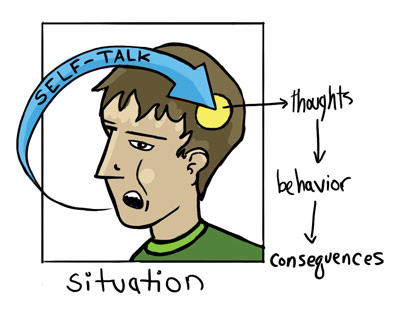Hi all, today I would like to share about the interesting topic, namely "How to find talent in ourselves", the main reason why I choose that topic because not everyone can find their talent, The main reason why many people don't find their talents is because they try to exchange their time for money, even though talent itself cannot be exchanged for money, but that doesn't mean that talent can't just appear, Our job as humans is just to practice every day with problems that we like and we are able to survive the turmoil of problems that come continuously, the pressure of the problem usually causes a feeling of discomfort, that's normal
Finding talent within yourself requires self-exploration, experimentation, and reflection. Here are some steps to help you discover and develop your hidden abilities:
1. Self-Reflection
You can use these questions to do self-reflection
✅What activities make you feel energized and excited?
✅What do people often compliment you on?
✅What subjects or tasks do you learn quickly?
2. Try New Things
✅Experiment with different hobbies, skills, and career paths.
✅Take online courses or attend workshops in areas of interest.
✅Step out of your comfort zone to discover hidden strengths.
3. Observe Patterns
✅Look at your past achievements and identify common themes.
✅Notice what you enjoy doing even when there’s no reward.
✅Identify areas where you naturally excel without much effort.
4. Seek Feedback
✅Ask friends, family, or mentors what they think you’re good at.
✅Take personality and aptitude tests to get insights.
✅Join communities where people can observe and guide you.
5. Develop Skills Consistently
✅Talent is often the result of consistent practice and learning.
✅Set goals and work towards improving in areas you’re passionate about.
✅Read, practice, and engage in activities that sharpen your skills.
6. Follow Your Curiosity
✅Pay attention to topics that naturally interest you.
✅Explore different fields to see where you feel most engaged.
✅Passion often leads to discovering hidden talents.
7. Embrace Challenges
✅Talent often emerges when you push yourself beyond limits.
✅Take on new roles and responsibilities
✅Learn from failures and use them as a steppingstone.
Talent can come from two main factors: innate (genetic) factors and environmental factors (formation through practice and experience).
1. Natural Talent (Genetic)
Some people have a natural tendency in certain areas, such as music, mathematics, art, or sports.
Genetic factors affect a person's cognitive, physical, and creative abilities.
For example, a child born to a family of musicians may have better hearing sensitivity.
2. Talent Shaped by Environment and Practice
Talent can also be developed through practice, experience, and education. Research shows that directed and consistent practice is more influential than just innate talent.
For example, someone who does not have a natural talent for painting can still become a great painter with intensive practice.
Which is More Important?
Innate talent gives an early advantage, but practice and hard work are what determine success. People who have talent but do not hone it can lose to those who diligently practice.
"Talent without hard work is useless." So, while talent can be born naturally, talent that is honed through practice and experience will develop further.








